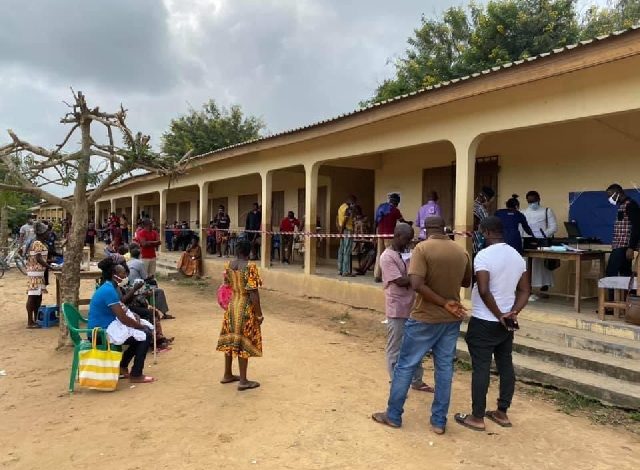12% of voter registration centres inaccessible to people with mobility issues, elderly – CODEO

About 12 per cent of voter registration centres across the country are inaccessible to persons with “mobility challenges and the elderly,” the Coalition of Domestic Election Observers (CODEO) has observed.
This was disclosed in the preliminary findings by CODEO on phases two and three of the voter registration exercise conducted from July Monday, 6 July to Friday, 17 July 2020 following its earlier report.
Ghana’s Electoral Commission began the compilation of a new voter register for the December 2020 polls across the country on Tuesday, 30 June 2020.
As of Monday, 20 July 2020, a total of 9,860,164 applicants had been registered by the Electoral Commission, representing 65.7% of the projected registrable figure of 15,000,000 in the ongoing voter registration exercise across the country, the election management body has disclosed.
According to CODEO, it “has one observer each in 100 randomly and purposively selected constituencies spread across all regions in the country. For each phase of the registration exercise, CODEO observers have been following and observing 100 selected registration centres.”
CODEO noted that: “Analyses of observer reports indicate that the registration exercise was generally conducted in accordance with relevant electoral rules and regulations.”
As part of its findings during phase two of the registration exercise, CODEO said: “While the majority of registration centres started daily registration on time”,r it “noted that there was a decline in the percentage of registration centres that were opened by 7:15 AM as compared to Phase One, from 66% to 58%. In particular, on Day 1 of Phase three (July 12, 2020), a number of registration centres opened late (in some cases after 12PM) either due to the late arrival of BVR kits and/or challenges associated with activation of BVR kits.”
It named the affected centres as “Ntonso Grace House, Ahwiaa Zongo in Kwabere East in the Ashanti region, D/A Prim School, Yabraso in Tain in the Bono region, and L/A Prim School and Adaklu-Torda in Adaklu in the Volta region. The EC, in a press statement, acknowledged the delays in the start of the registration exercise on July 12, 2020, and promised to make up for the time lost at the affected registration centres.”
CODEO also observed that: “There were stationed uniform personnel at 71% of observed centres, a slight decline compared to 79% in the centres observed in Phase One.”
It said while “about 12% of registration centres observed in the two phases were found not to be accessible to persons with mobility challenges and the elderly”, the “registration forms were available in most cases (99%).”
CODEO further observed: “In 11% of cases, registration centres encountered challenges with the performance of the registration kits, resulting in the suspension of the exercise at many of the affected centres. The most reported cases of malfunction related to laptops and fingerprint scanners while printers and cameras reported a few challenges. In most instances, the issue of equipment malfunction was resolved/fixed for the process to continue.”
CODEO continued: “At several registration centres, political party agents continued to collect voter ID card details and contact information from newly-registered persons. In a few cases, this generated heated verbal exchanges between registered persons and some party agents, similar to what was reported in Phase One of the exercise.”




